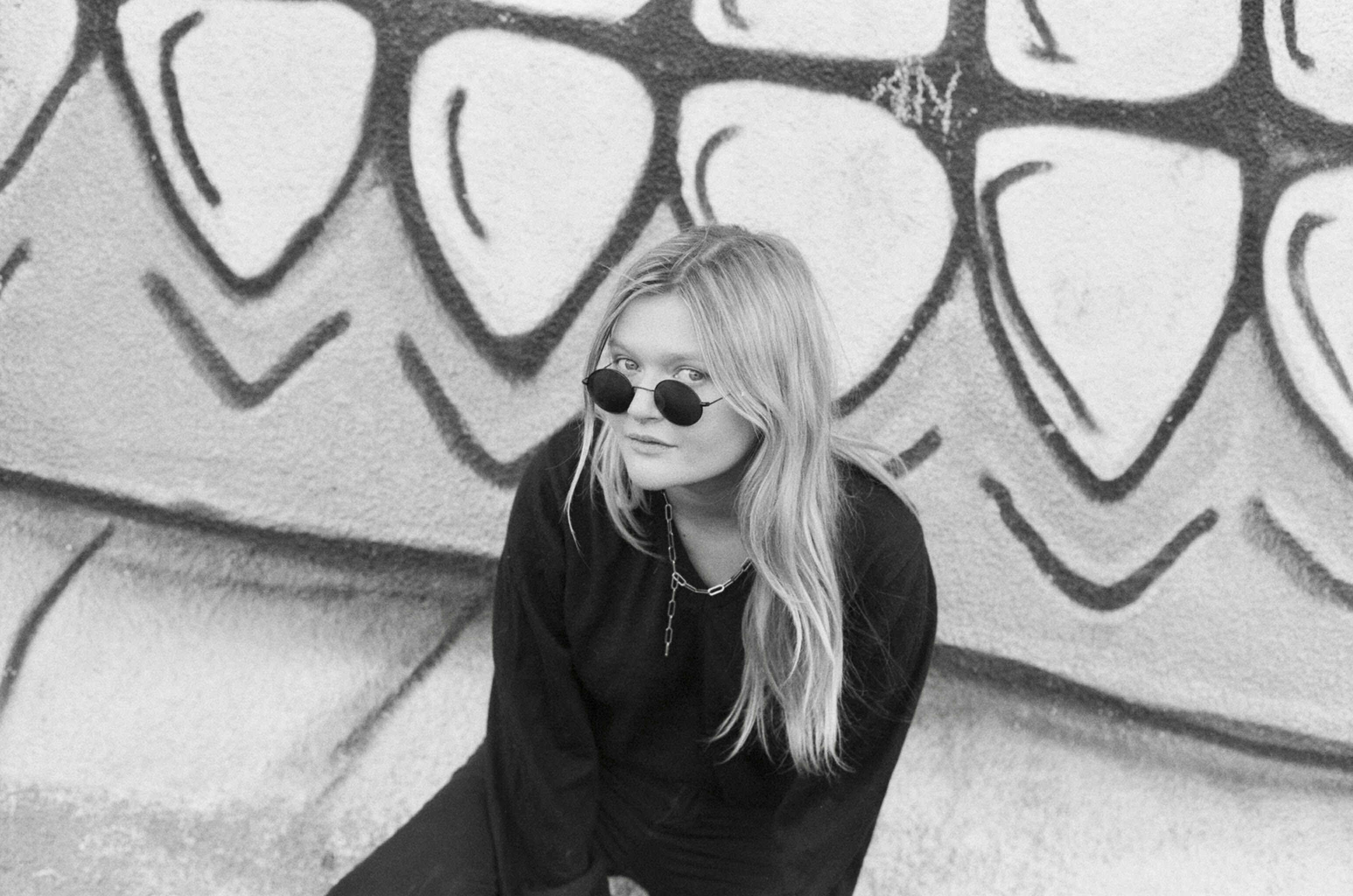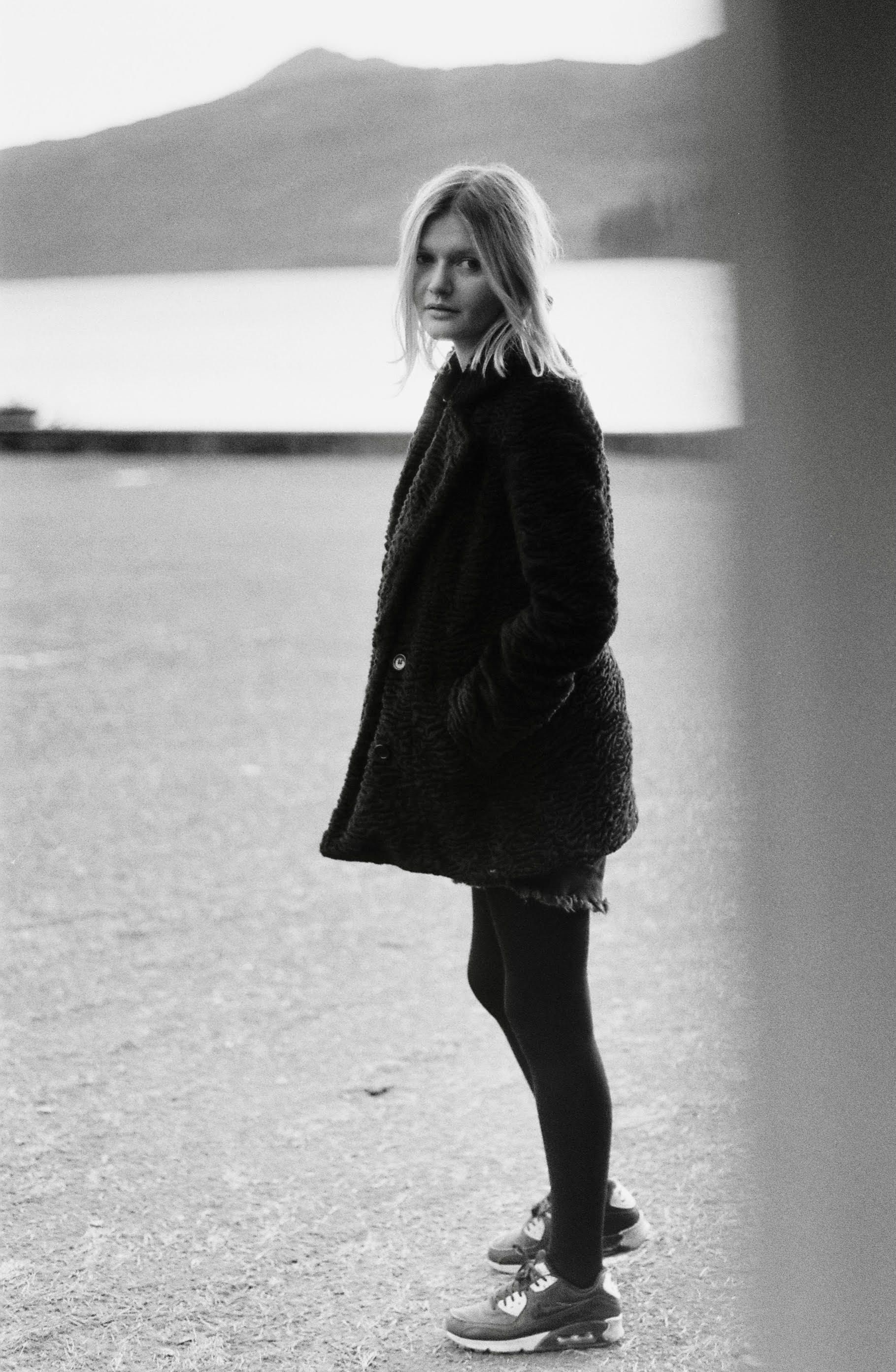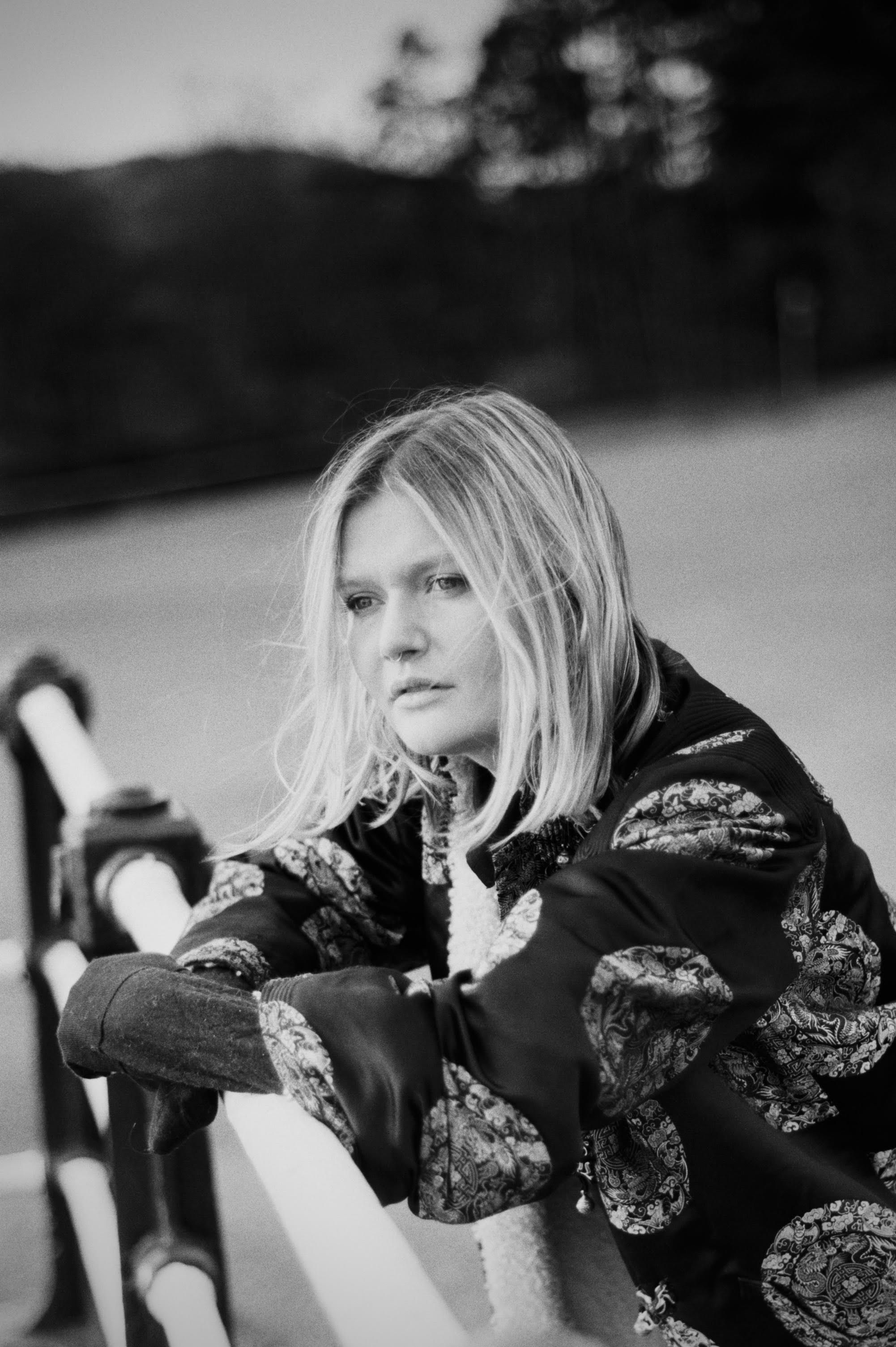
The actor and producer on the importance of play and the art of pushing your boundaries
The Scottish actor Sophie-Kennedy Clark has been starring on our screens for over a decade, and has been quietly building a formidable reputation in the film industry. Her earliest performances were produced under the tutelage of iconic directors such as Lars von Trier, Stephen Friers and Tim Burton, and the considerable on-screen skills she learned on-the-job – rather than via drama school – have most recently led to her being cast as a young Madonna in the excellent Urban Myths on Sky Arts. Her passion for all things celluloid has also found its way behind the camera, with the actor switching to the role of producer on the soon-to-be-released independent film Sorority, which has been long-listed for a BIFFA. Here, she tells Collective Culture why being trained as an actor can be actually be counter productive in terms of creativity, and explains why it’s always important to allow yourself to be pushed in the pursuit of art.
Can you recall what first attracted you to a career in acting?
I don’t remember a light bulb moment, honestly, but I grew up in a very creative musical family, and I was always a very good mimic when I was younger, so that thing of copying accents or characters from movies came quite early on, and I just used to sort of carry them around with me all day. The arts were definitely not laid out as if they were something you could actually have a career in when I was at school, so that notion only hit me when I was 17 years old, and moved to New York to study film. The students kept on putting me in their short films, so it just sort of came quite naturally to be in front of the camera, and I began to feel like acting as a career was something I could push for. I've been so lucky in regard to my trajectory, because some of the people that I got to work with very early on were amazing. Lars von Trier cast me in Nymphomaniac right at the beginning.

He is a pretty controversial figure. How far do you think it is appropriate for a director to push their actors?
Filmmaking is a fragile process that can easily go one way or another, and if it goes badly it can leave people damaged. But it is my belief is that if an actor signs up to do something and it's a conversation that is had between them and the director, in which the director says, ‘I'm going to push you, like I'm going to do my worst’, then it is part of the process. Obviously, there are producers on-set in case that ever goes too far, or feels like bullying. I actually think that kind of thing is far more prevalent now in things like reality television, where the job is to get as much drama out of people as possible. Some of the very best actors can find crying on film incredibly difficult, and yet you see a reality television show, and these people are just absolutely weeping and screaming their lungs out – I don't even see performances like that in movies sometimes! Actually, the really hard work in film much more often comes if you just don't mesh with people that you're working with, because that can feel quite lonely.
How do you go about finding a character?
I believe in in that kind of old-school approach that you always have to find elements of yourself in the character that you're playing, and I've always found it helpful to do quirky little things, like put something in a pocket or a handbag that I think the character would have there. It's about creating the idiosyncrasies that make them feel real to me. There's also a kind of sacredness to costume, and hair and make-up – all that kind of stuff that really shapes you differently. Thankfully, I’m someone who always finds it quite easy to slip in and out of character. The moment that I've got my trackies back on and I'm in the trailer, or whatever, I just immediately revert back to me. I have never done any real acting training, and although I know that is an amazing thing for some people. I just never really felt like I needed to do it. I've actually heard actors say that being trained can actually take the play element out of acting – I feel like it's like playtime every single day that I'm at work, and I love that.

Why have you recently also moved into working as a producer?
It has been really exciting for me in the last couple of years working on the other side of the camera–it’s great having that little bit more creative control and being able to kind of get to the meat of the stories. I love the problem solving that comes in just trying to make things run as smoothly as possible. It's such an amazing thing when it goes well, and it can also be a scary, daunting place if things aren't going to plan. I think, the most important thing I've learned as a producer is to hold on to that positivity – you want everyone to turn up to work the next day with a spring in their step, and you want people to look forward to coming to work. I think as an actor it has given me a better sense of the whole thing, and the fact that any filmmaking is so truly collaborative – lots of people are investing their time and their money to make them something that's meant to be a positive, beautiful thing. I just love that collaborative process of storytelling to my core.
All imagery shot for Collective Culture by Scott Temple